#harry is equally obsessed dw
Text
harry is captured sunlight and voldemort is the thief who grasped and stole him away. what began as uncanny fascination became a craving so compelling, imploring, voldemort had to have him--had to feel harry's warm breath and blood on his own face.
#voldemort's desire for harry is a prayer#harry's desire for voldemort is an angel's fall#voldemort clawing his way to heaven to have harry and for harry only#harry is equally obsessed dw#prostration#worship#devotion#as toast and i were talking about.... words#harrymort#tmrhplv drabble#tomarrymort drabble#not even a drabble#a trickle#a blot#izharwriting
135 notes
·
View notes
Note
Do you ever just sit and ask yourself what if I'm wrong about jikook? I'm not am anti I promise. I just have a hard time letting go of certain things I fixate on and I guess bts and jikook have become one of those fixations. And my brain just can't get over the hump of thinking what if we're wrong? And I get a weird sinking feeling. And I know I shouldn't be this attached to the potential relationship of two strangers haha.
So I guess I'm just wondering how you deal with not knowing for sure yet still attaching so much emotions and research into jikook as a couple. Would it be easy for you to just let it go if it came out they're not a thing? Is so how do you train yourself to make it easy?
I think I would really have to reevaluate my deductive skills and my reasoning if I turn out to be wrong cause it just seems like they are together. But then there are so many taekookers just as convinced. I seriously sit and wonder if I'm just delulu but for jikook and not taekook. And it would make me feel so stupid.
Oh and also if there's no doubt in your mind, how are you so sure? Because I have doubts as high as a skyscraper one day then another day I'm super sure they're together haha.
I will tell you a little secret about myself anon, but please don't tell everyone, this is between the two of us:
I have a little bit of an obsessive personality. Not obsessive crazy as shit personality, but the type of personality that when I latch on to something that I find interesting, I will dissect it to bits, and if it's a mystery, even better.
It's kind of what made me good at my job.
Prior to the pandemic I was all about Disney, Disney world, Disneyland. Ask me anything about Disney World (prior pandemic) I knew it. It was my happy place, the thing that brought me joy (apart from my loved ones, of course). I even ran my own Blog. I follow most of the Disney World bloggers, and used to watch their clips daily, as much as work and family could allow it. I even had a DW trip fully planned and booked for Sep 2020 (which went kaput). Family is similarly obsessed with everything Harry Potter and Marvel equally.
Yes, slightly obsessed.
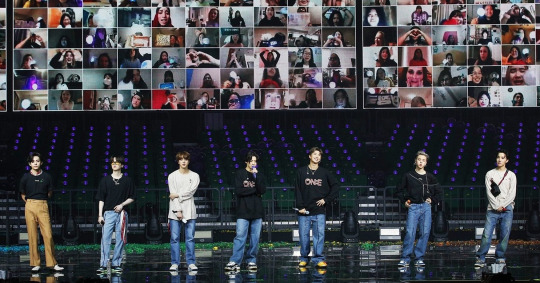
The pandemic put a stop to the Disney World blogging, and so then came BTS. With BTS came my interest in these two members that interactions seemed to be 'different', et voila, a new mystery, a puzzle, if you want, for me to find it's pieces and try to build.
While diving into this new mystery I came to learn more about all the members and gained a real appreciation for who they are as human beings and what they stand for. I also found a bit of me in JK's personality, I feel I see him, in a way, understand some of the struggles he faces and understand his behaviours.
Imagine my joy to discover they are into Disney, Harry Potter and Marvel too...
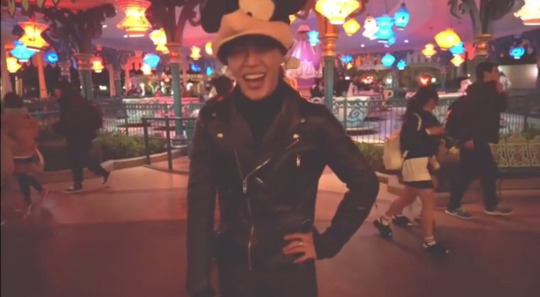
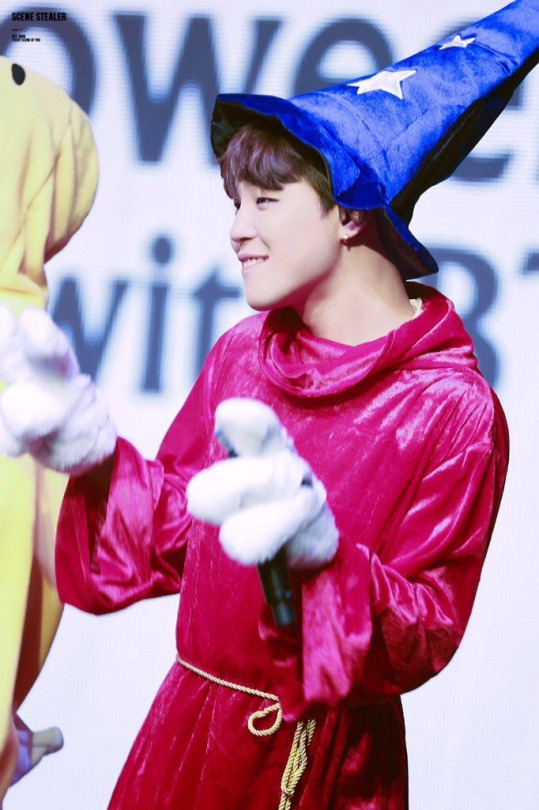

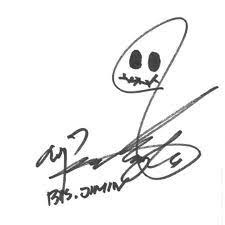
All this and I haven't yet answered you questions anon, lol.
Why this long ass prologue though?
To explain my thought process, the reason I got into Jikook, and why I'm still here. I didn't read a tweet (couldn't if I wanted to, not being on Twitter) and decided Jikook are real. I didn't watch a Jikook clip on YT and decide Jikook are real.
I notices something different between those two, latched on and went digging. But that wasn't all of it. The more I got into it, I learnt about skinship, a bit of Korean culture, shipping and more so about the other ships within BTS, and went looking to see, maybe, just maybe I am getting things wrong. The more I went looking the more I saw just how different Jikook were to the others.
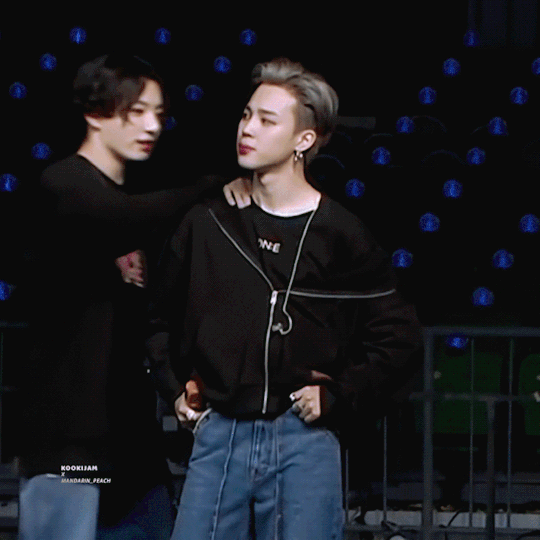
From everything I've watched, from the digging I've done, from the content I have seen (original content, not edited and twisted content), I have come to my conclusion that that JM & JK are a couple. That is what I believe.
Saying that, unless JM & JK 'come out' and announce it publicly, or something to that extent, I can never be 100% sure.
Do I have doubts? Of course I do. Not as much and as often as some Jikook's seem to have, but I do need, once in a while, to look back, re-watch content, do a bit of re-evaluation, a bit of reminding too, as to what made me believe in the first place. Isn't that only natural?
It's actually quite healthy to do that once in a while, at the end of the day it only strengthens my beliefs as to what is going on between those two.
I think though that what makes the difference for me anon is that I'm not a shipper. I don't see myself as a shipper. It's not "oh, they look good together I want to fantasize about that" or "I think they are together and to hell with reality". I didn't even know what shipping was before I entered this fandom. I saw two young men that I felt had this pull towards each other and went with it, and that brought me here.

Will I be upset if they turn around and say they aren't together?
No, not really.
I'm here to support a couple of lovely young men that I feel love each other and have to hide who they are and who they love because of the industry and society the are part of.
If I am wrong, then be it.
They are lovely, positive, talented human being, who have worked so hard to get where they are today. All I wish for them is to be happy, because I feel they deserve it.
I am not emotionally invested in them being a couple. This is super important to make clear, and I think that if as a fan you find yourself in that place you need to take a step back and re-evaluate things.
Yes to love and support. Yes to follow and be happy for them. No to be emotionally swayed by every single thing they do or don't do. No to basing your own happiness on what goes or doesn't go on between them.
Will my pride be bruised if at the end of the day my sleuth abilities will be proven wrong, hell yeah, lol.

Will I be sad or disappointed or hurt or angry if at the end of the day I am proven wrong? No way.
All I wish for them is to be happy. Wherever it may be or whoever it may be that they find that happiness with.
79 notes
·
View notes
Note
so i love harrys album. but i dont get all the hype. i love it but everyone seems so obsessed like its the greatest thing ever. i LOVE some songs like sweet creature, two ghosts, sott but others i dont get the hype. sometimes i feel like he gets so much recognition bc its harry styles TM. he def deserves a lot of recognition! but i feel like his name gives more too. sorry if this doesnt make sense im not tryin be rude. i lov harry. u dont hav to post i just needed to vent without being attacked
also harry album anon? here. like i feel like ppl make it seem like the others music is not that good as harrys or considerably worse. and i just want them to all get equal recognition but harry gets more bc he is harry. (again im sorry if this makes no sense. u dont hav to post. i just wanted to vent)
ok me one more time. ik its not harrys fault with the image of him and how he is most popular.. it just makes me sad for the other boys :(
--
hi bab!! ur opinion is definitely valid and dw, this is a safe place for u to vent and it’s okay to feel the way you’re feeling! to be honest, i feel like harry’s album has gotten more attention because of the way it was promoted and also because it’s a full album instead of just a single. i love his music but i have also been loving liam’s, niall’s and louis’. also, some people prefer different sounds so some will enjoy some of the boys’ music over the others’ and tbh that’s okay!! everyone is allowed to like some music over other xx
1 note
·
View note
Link
via Politics – FiveThirtyEight
The Congressional Black Caucus has existed since 1971. It included 12 House members in its early days and has gradually grown to a record-high 51 House members this year.1 Its origins are in the Democratic Party, and it remains overwhelmingly Democratic — a result of both the paucity of black Republicans elected to Congress and those few Republicans who are elected declining to join the caucus. Overall, 117 black Democrats have been House members since the 1970s.
But while white U.S. House members from both parties often end up getting elected to the Senate,2 no black Democratic House member has ever been elected senator. Or governor. Only eight black Americans have ever been popularly elected to one of those jobs in the first place. But it’s striking that there is a sizable pool of black elected officials not advancing to higher office.
The positions of governor and senator are, of course, traditional stepping stones to running for president. And that’s where CBC members remaining in the House gets even more interesting. Over the past decade, five black Democrats have either ran serious presidential campaigns (Cory Booker, Kamala Harris, Barack Obama) or been widely touted as possible candidates by party officials or the media (Stacey Abrams, Deval Patrick.) None of them ever served in the House.
That might seem like just a coincidence. Maybe it is. But there’s a strong case that up to now, America’s political structure has pushed forward — or allowed the emergence of — only a certain kind of black candidate for the highest offices: one with stellar credentials in white-dominated spaces and relatively moderate politics. That process has likely screened out more liberal politicians from presidential consideration (think longtime California congresswoman Barbara Lee) and those whose successes have been in traditionally black environments (the CBC, black churches, civil rights organizations).
I’ll say up front: This is more of a theory, based on my own observations and interviews of experts on race and politics rather than any kind of formal model or study of black presidential candidates. (There just isn’t much to study. The number of black people who have run for president is fairly small,3 there’s only one presidential election every four years, and even the CBC is a not a very large set of politicians.) In short, this theory isn’t foolproof, probably has exceptions and may be changing.
Let’s start with the ideology of Abrams, Booker, Harris, Obama and Patrick, compared with other black politicians. While it’s hard to quantify this, those five fall broadly in the center-left, mainstream of the Democratic Party — and not in its more leftward wing. They are liberal on economic issues but not as far left as, for example, Alexandria Ocasio-Cortez, Bernie Sanders or Keith Ellison, a black Democrat from Minnesota who was elected the state’s attorney general in 2018, a year after more centrist Democrats successfully mobilized against Ellison becoming chair of the Democratic National Committee.
On issues of race and identity, those five generally support policies like major reforms of the criminal justice system, but none of them are leading civil rights activists-turned-politicians like Jesse Jackson or Al Sharpton, who ran for president in 2004. Booker, Patrick and Obama are all known for their optimistic rhetoric, particularly in suggesting that America’s racial divides are not intractable. Abrams and Harris are significantly more blunt (maybe honest) about racial issues than Obama was — so much so in Abrams’s case that I’m not sure she fits that well into this group. But even Abrams and Harris are not on the very leftward end of the Democratic Party on racial issues.4 Overall, the party is much more liberal on racial issues than it was in 2008 — and Abrams and Harris are generally in the mainstream of that new consensus.
In contrast to those five, CBC members seeking to become governor, senator or president are likely not advancing in part because they are perceived (by both Democratic powerbrokers and voters) as too liberal to win those kinds of races. The majority of CBC members represent districts that are at least 40 percent black, aligning them with America’s most Democratic-leaning racial group.5 In part because they represent heavily Democratic-leaning districts, members of the CBC typically amass more liberal voting records than the average House Democrat, let alone the average Senate Democrat, who tends to be a bit more moderate.6
Why is being perceived as too liberal an impediment to running for governor, senator or president? For one, that perception probably hinders big-dollar fundraising. Obama (in his 2008 presidential campaign) and Booker (in his 2014 Senate run) raised a ton of money from employees of financial firms. One reason wealthy people (even those who are left-leaning) might be comfortable with these black politicians is that none of them has proposed aggressively taking on the rich like Elizabeth Warren and Sanders have.
Secondly, candidates of any race who are further from the ideological center of the two parties tend to face questions about whether they can win a general election. And there is evidence that, all else being equal, more extreme candidates do worse on average than more centrist ones. But black candidates often face “electability” questions above and beyond their actual policy record. There is some scholarly research that voters perceive black candidates and politicians as more liberal than white politicians of a similar ideology because of their race.
Electability is also an important perceived problem. Democratic activists and party leaders sometimes act like a black candidate “can’t win” in ways that probably overstate the real evidence on electability, discouraging black candidates from running for offices that they might be able to actually win.
Abrams (in her gubernatorial campaign), Obama (in 2008) and Harris (in her current presidential run) have all faced questions about electability — so being more moderate does not totally eliminate this problem. But I suspect that dynamic would have been much worse if, say, the three described their politics as “socialist” or were leading voices in pushing for reparations. (Booker and Harris embraced a bill to study the issue of reparations earlier this year. But this is not a particularly liberal stance in the current Democratic Party — white 2020 candidates such as Kirsten Gillibrand, Bernie Sanders and Elizabeth Warren signed onto that bill too, as did more moderate Democrats like Bob Casey of Pennsylvania and Chris Coons of Delaware.) Perceptions that he was too liberal to win a general election limited Jackson’s 1988 candidacy, which was the most successful presidential campaign by a black candidate until Obama’s run.
Let’s move to the biographies and credentials of the five black Democrats who have featured prominently on the national stage. Again, it’s hard to quantify this, but I doubt any academic or professional credential has been emphasized more in a campaign than Obama’s distinction as the first black president of the Harvard Law Review in 2008. Abrams (a Truman scholar), Booker (a Rhodes scholar), Harris (the first female, first black and first Asian American district attorney of San Francisco) and Patrick (undergraduate and law degrees from Harvard) have similar accolades.
American elites, particularly liberals, are obsessed with the accruing of such “meritocratic” credentials — and not just for aspiring black politicians. Supporters of Pete Buttigieg often brag that he went to Harvard, won a Rhodes scholarship and is versed in seven languages.
But I suspect this desire for out-of-this-world credentials is heightened for aspiring black politicians. As I noted, a black politician running for president can’t really run a Sanders-style candidacy — emphasizing his or her leftism — or risk being cast as unelectable for the general election. Thus, black candidates hype their credentials as a safer way to distinguish themselves. These credentials are also, in some ways, a substitute for actual political experience and accomplishments. The black politicians with a lot of experience and accomplishments (like CBC members) have often represented heavily black, Democratic areas — so they are deemed unelectable.
Finally, these credentials probably help these candidates prove they are smart and hard-working — and thus qualified to white elites and voters who might hold anti-black views, either consciously or unconsciously. Forty-two percent of Americans, including 23 percent of Democrats, agree with the view, “if blacks would try harder, they could be just as well off as whites,” according to a 2018 Public Religion Research Institute survey.
In the early years of Obama’s presidency, Trump — along with falsely suggesting that Obama was not born in the U.S. — kept hinting that Obama wasn’t smart enough to get into Columbia or Harvard (implying Obama got into those schools only because of affirmative action). Other conservatives harped on Obama’s use of a teleprompter to give speeches (even though many previous presidents had used that device, too). Obama’s accomplishments (he wasn’t just admitted to Harvard Law but was picked by his fellow students to be the law review president) provided an obvious rebuttal to these criticisms, even if the claims by conservatives and Trump were racist and should not have been taken seriously in the first place.
In the same vein, it’s possible that any mayor of Newark would be a serious contender for a U.S. Senate seat in New Jersey, but it probably helped Booker that he also had Stanford, Oxford and Yale degrees as credentials.
“The only blacks who could survive and be in a viable position in 2020 to run for president were those who moved to the center in the past to win high-profile statewide races,” said Christopher Stout, an Oregon State University professor and author of a 2015 book on black politicians.
Booker and Harris did that, successfully navigating the political system of the early 2000s and 2010s — a system that has arguably left a lot of black politicians choosing not to run for major offices or being discouraged by party officials from doing so. There is evidence, though, that the system is changing in ways that might expand the range of potential black governors, senators or even presidents.
First, something significant happened last year. In November, nine black Democrats were newly elected to Congress, and none represents a heavily black district.7 Three of the members — New York’s Antonio Delgado, Georgia’s Lucy McBath and Illinois’s Lauren Underwood — won districts that Trump carried in 2016. It will be harder for Democratic Party power brokers to suggest that these nine black House members can’t win statewide — they just won in areas that aren’t heavily black, after all. And their victories should spur Democratic officials to consider whether other black Democrats, including longtime CBC members, could win in non-black-majority areas.
Secondly, the Democratic Party’s broader leftward shift, particularly on racial issues, may also open up new possibilities for black politicians. Maybe it’s still safer ground for Beto O’Rourke, Sanders or Warren to call Trump a “white supremacist” (as all three have recently) than it is for Booker or Harris to do the same (neither has). But in a Democratic Party where liberal rhetoric on racial issues has become more standard, swing voters have a choice of voting for a Democrat (black or not black) who takes liberal stances on racial issues — or a Republican who does not.
In fact, we may already be in a new political environment, one where black politicians can afford to be more liberal on racial issues. Abrams is putting voting rights, specifically the idea that Republicans are making it harder for people of color to cast ballots, at the center of her political brand. That has traditionally been considered an issue more for a Sharpton-type (a black person who might be considered by Democratic Party elites to be unable to win a general election) than an Obama-type (a person perceived to be more “electable.”) But in today’s politics, it’s possible that Abrams can simultaneously lead the conversation on voting rights, remain a viable candidate for the Democratic vice-presidential nomination in 2020 or run for governor of Georgia again in 2022. For their part, Booker and Harris have described Trump as “racist,” a term Obama rarely used to describe his political opponents.
“If the trend continues and the Democratic Party continues to move to the left on racial issues, in 2028, or beyond, then you may have a different type of black candidate running,” Stout said.
0 notes
Text
Macho Man/Soft Gooey Heart
i wanna take the concept of the “douche/asshole/snark/loner/graymoral (criminal) with the heart of gold” and rinse the gross underlying hyper-masculinity out of it
bc think about it. when you think abt a character that matches that x with the heart of gold, what actually makes that douchebag have a ‘heart of gold’?
in general, it tends to be “this guy is a selfish, rough around the edges older man who doesn’t take your shit. he speaks his mind, and doesn’t put any frills on it. but he does that because DEEP DOWN…he cares …he’s never once said a kind word to anyone in the part, but (love interest) once saw him feed homeless kittens…he’ll sacrifice himself in the end for the greater good.”
forget all those times he made that kid cry and have low self esteem. he means well. (See Severus Snape, Harry Potter)
MAJOR MAN POINTS (BRO)
I don’t TALK about my DEEP BROODING DARK FEELINGS…
I have to HIDE any part of me that’s DECENT TO OTHERS to protect them because i assume other human beings are not capable of handling themselves
I reject any notion that I AM FLAWED while simultaneously emoting how BROKEN OF A MAN I AM but only to exude the sense that I AM MORE WISE AND EXPERIENCED AND SKILLED THAN ALL OF YOU BECAUSE I AM
I have to be mean to you SO YOU LEARN…it’s how I LEARNED so it is the only way YOU WILL LEARN THE TRUTH!!! if you are hurt by my teachings…god..IM SO BROKEN…EVERYONE AROUND ME BREAKS!!! ARGH!!!!!!!!!!!!!!!!!!!!!!!!!!! SCREAMS INTO RAINING SKY
if you see my true tender underbelly…i will trust you so hard that i will obsess over you forever and ever and ever and you will never l e a v e dONT G O

i think the point is made
Can a character with these tropes be done well, respectfully, and realistically? ABSOLUTELY (SEE: JOEL^^^ from the video game The Last of Us)
Is this type of character getting kind of overdone and icky bc it’s done way too much where it’s not done respectfully (IE: oc is huge asshole 99% of the time, but it’s ok bc he redeemed himself through one action lol he was ok the whole time underneath all that dw abt it!!)?
yes, esp w the increase of dilfs + daughter clutches
i think it's super important, when approaching these types of character clutches (or any type of "problematic" character) to not only think about how to make this character realistic, but how are you portraying the environment around the character?
More specifically, if your character is doing problematic things that are not going unchecked or even being rewarded in context of the story, that's not a good thing. what it does is imply to the audience that what they're doing is okay, or in this specific example of douchebag with a heart of gold - redeemable without observing past offensives that may or may not be equal.
having a character with a toxic personality is NOT a bad thing - depending on the narrative, certain irredeemable characters are necessary to plot or may even bring in themes that otherwise may not have been accessible.
however, a toxic character becomes problematic when that character is portrayed in an unclear moral light (to the audience).
which is where a lot of these issues with dickbags becoming forgiven on a dime come from.
character creation goes hand in hand with the context of a narrative and where their place is in that narrative. playing with tropes can be a fantastic way to learn how to do new things with old tricks.
if you want to be a progressive storyteller, though, don't just think about how cute an angry old guy would be if he wore an apron but also slapped puppies 2 years ago - think about the development from then to now, the environment he's in, what during the current timeline would make him change further, and what would motivate him to continue changing and stick with it - because that's how change truly works.
and people don't forgive that easily.
0 notes